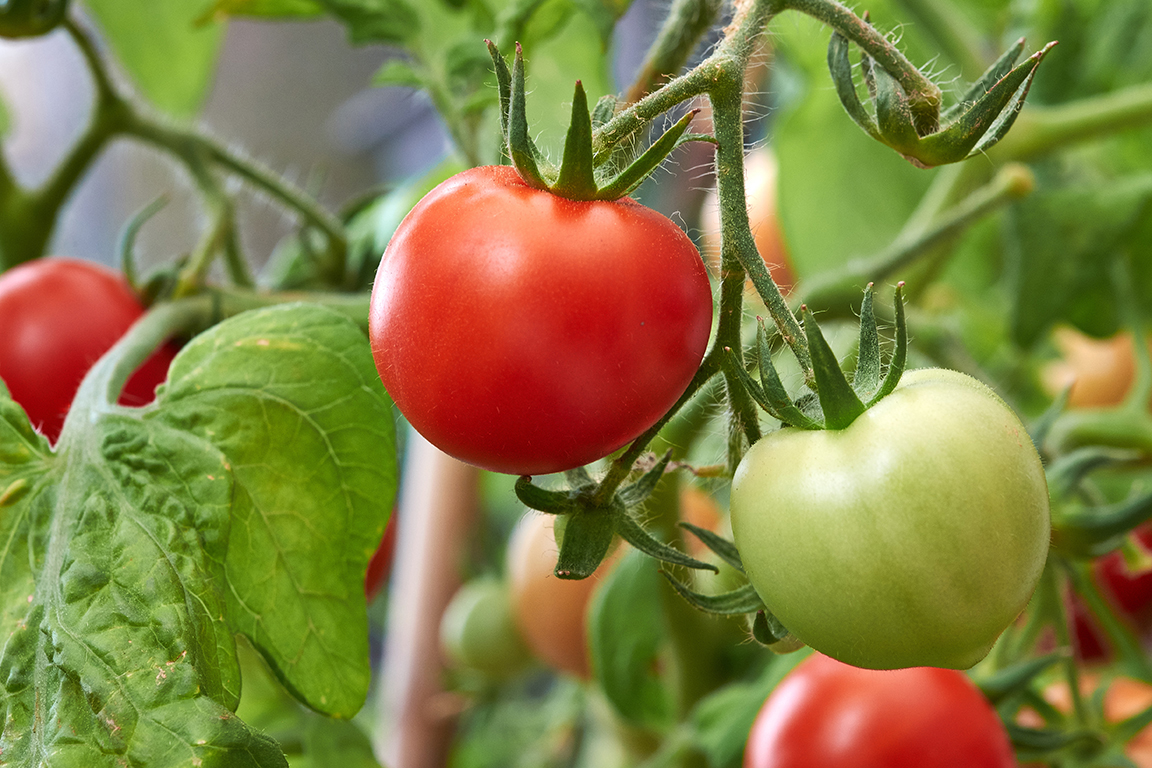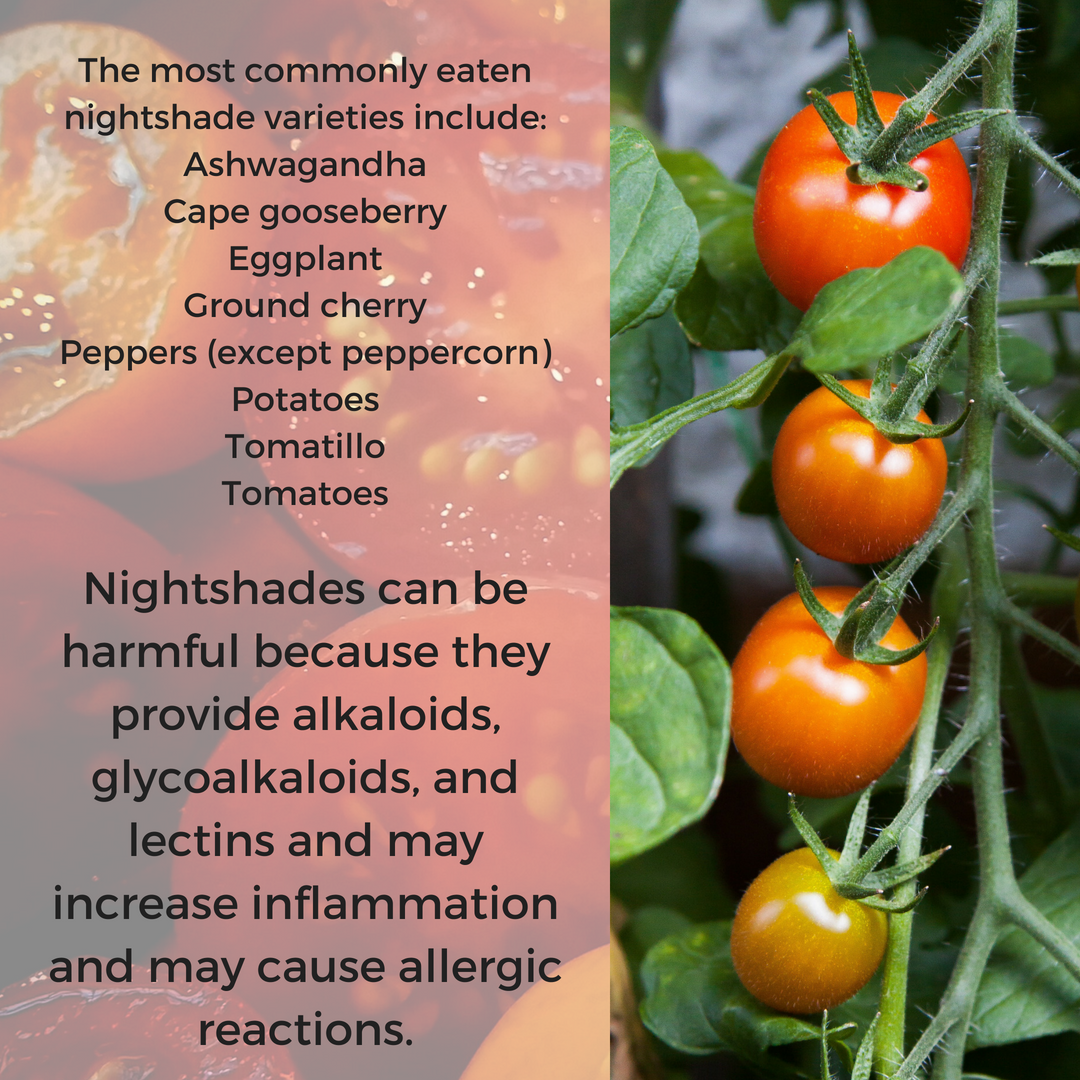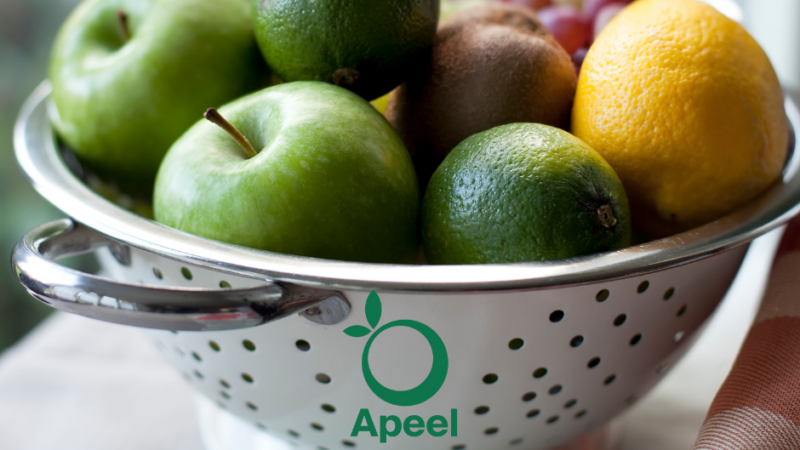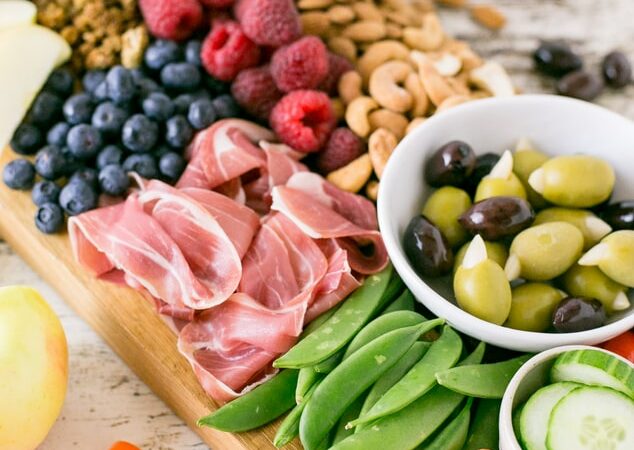Nightshades: Friend or Foe?

There are many debates about which foods should be avoided in the diet. Among items like sugar, dairy, processed foods, gluten, grains, and soy, you may come across the idea that nightshades should be eliminated, especially if you have arthritis or an autoimmune disease. Is there any evidence that these vegetables, which often have healthy nutrients and phytochemicals, should be blacklisted?

Quick Read:
- Nightshades are a family of plants with more than 3,000 species. Some, such as belladonna, are known poisons. Others are familiar foods like eggplants, peppers, potatoes, and tomatoes.
- Some argue that nightshades can be harmful because they provide alkaloids, glycoalkaloids, and lectins and may increase inflammation and may cause allergic reactions.
- On the other hand, there is other evidence that alkaloids and glycoalkaloids may be beneficial for numerous health concerns, including obesity, cancer, and more.
- Research against nightshades is limited, but it may be beneficial for some individuals with specific conditions (such as autoimmune disorders, arthritis, or IBD) to remove nightshades at least temporarily to see if they enjoy health improvements.
- Remember to speak with your healthcare practitioner to see if removing nightshades may be beneficial for you.
What Are Nightshades?
Nightshade is the term given to a family of plants whose scientific name is Solanaceae. Some of the more than 3,000 species in this family are known poisons, such as belladonna. Others are familiar foods found in diets around the world. The most commonly eaten varieties include:
- Ashwagandha
- Cape gooseberry
- Eggplant
- Ground cherry
- Peppers (except peppercorn)
- Potatoes (not yams or sweet potatoes)
- Tomatillo
- Tomatoes
In addition, there are some plants that also contain solanine that some may recommend you avoid if you display a sensitivity, including blueberries, artichokes, and huckleberries.
Why Remove Nightshades?
Those in the anti-nightshades camp generally argue that these plants can be harmful for the following reasons:
- Alkaloids and glycoalkaloids
- Lectins
- Food allergies and histamine
Let’s start by looking at the alkaloids and glycoalkaloids in the plants. These are natural pesticides and include solanine, capsaicin, and nicotine. The hypothesis is that since they act as a protection to the plant, they may be toxic to those who consume it. Some studies have found adverse reactions to some of these alkaloids and glycoalkaloids.
People can have a food allergy to plants in the nightshade family. A food allergy to potatoes is possible, with those with atopic dermatitis and other food allergies the most at risk. People also report food allergies to tomatoes and eggplants (aubergines), although the allergy to eggplant may be from the histamine content rather than to the eggplant-specific proteins. As discussed in a previous blog, when you do present with a food allergy, it is beneficial to remove those foods from your diet.
If you struggle with a chronic illness, have removed the more common triggers from your diet, and consume a lot of nightshades, then you may benefit from a trial to see if eliminating them works. Talk with your nutritionist, dietician, doctor, or other healthcare professional to see if removing nightshades may be beneficial for you.
This article originally appeared at: http://deannaminich.com/nightshades-friend-or-foe/.






